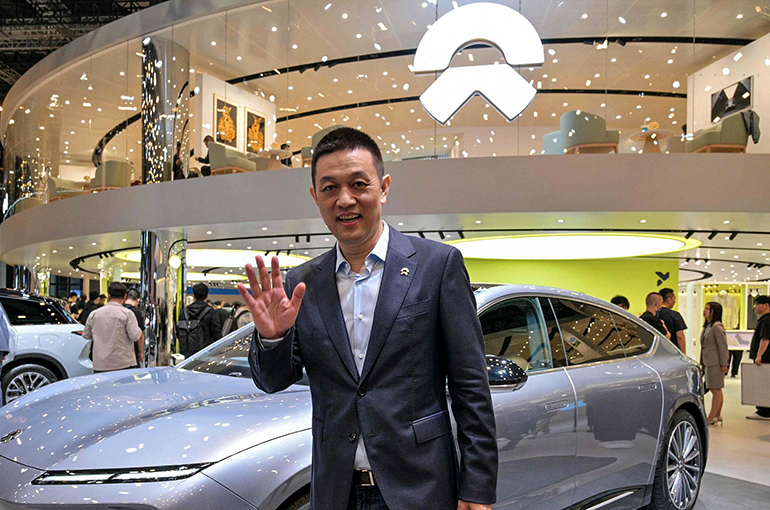 Nio’s CEO Rallies Chinese Carmaker’s Staff in Year-End Profitability Push, Report Says
Nio’s CEO Rallies Chinese Carmaker’s Staff in Year-End Profitability Push, Report Says
(Yicai) Oct. 20 -- Nio’s Chief Executive Officer William Li has said he expects employees to be fully committed to the Chinese electric car startup’s goal of becoming profitable this quarter, describing it as the foundation of Nio’s sustainable growth, 21st Century Business Herald reported.
“This is the result our entire team must deliver to prove our operational efficiency and management capabilities,” the report said Li told a meeting of mid-level and senior managers on Oct. 17. “Profitability in the fourth quarter is not to impress others, but rather the cornerstone of Nio’s long-term sustainable development,” he said.
Li set the profitability target in March, and has reiterated the goal in public statements throughout the year, including on the Shanghai-based carmaker’s earnings conference call last month.
In the three months ended June 30, Nio's net loss widened 0.3 percent from a year earlier to CNY5.1 billion (USD720 million) while revenue rose 9 percent to CNY19 billion (USD2.7 billion). The company has yet to release its third-quarter earnings results, though it delivered 87,071 in the period, a 41 percent year-on-year jump.
Li, who is also Nio's founder and chairman, outlined three priorities for achieving profitability this quarter: driving stronger marketing for key models, stabilizing the supply chain and cutting costs, and delivering high-quality software updates on time, the report said.
He stressed that “every car matters,” especially before purchase tax changes early next year that could sap demand, adding that Nio “must seize this window of opportunity.”
Among Nio’s rival electric vehicle startups, Li Auto made a profit for the 11th straight quarter in June quarter, Leapmotor Technology reported its first profit for the first half, while Xpeng Motors logged a CNY480 million (USD67.39 million) second-quarter loss, its lowest in nearly five years.
“Fundamentally, profitability is achieved by selling more cars, not merely by cutting costs,” Li was also reported as saying.
This quarter, Nio will deepen its company-wide business management system, with each business line required to develop its own three-year plan. This includes refining the cell business unit assessment and incentive systems and continuing to strengthen 15 defined system capabilities. The CBU initiative is not a cost-cutting measure but one aimed at boosting efficiency, he said.
In addition, Li said he would personally track the rolling demand forecast for the next 18 months and attend more than 30 related workshops this quarter.
Editor: Martin Kadiev